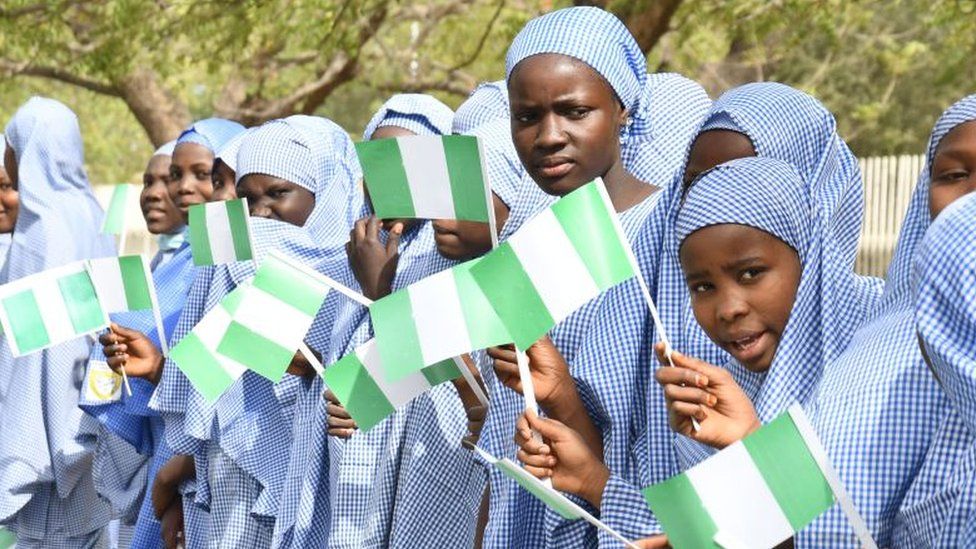What happens in Nigeria affects a large portion of Africa because it has the largest economy and the most populous nation (214 million people). After eight years of Muhammadu Buhari as president, voters will choose a new leader, but whoever is chosen will face some difficult tasks.
Some of the concerns that voters who are about to cast their ballots have are shown in the following charts.
Like the rest of the world, Nigerians have recently been affected by the rise in food prices brought on by the fallout from the conflict in Ukraine. But even before the fighting started, prices were rising as a result of the closure of the border to many imports and a dearth of foreign currency.
In total, inflation in 2022 was at a level not seen in 20 years, slightly less than 19 percent. The basic good of garri, or cassava flakes, has been one of the least affected, but the sharp increase in the cost of other necessities like tomatoes and vegetable oil is having a significant effect on families.
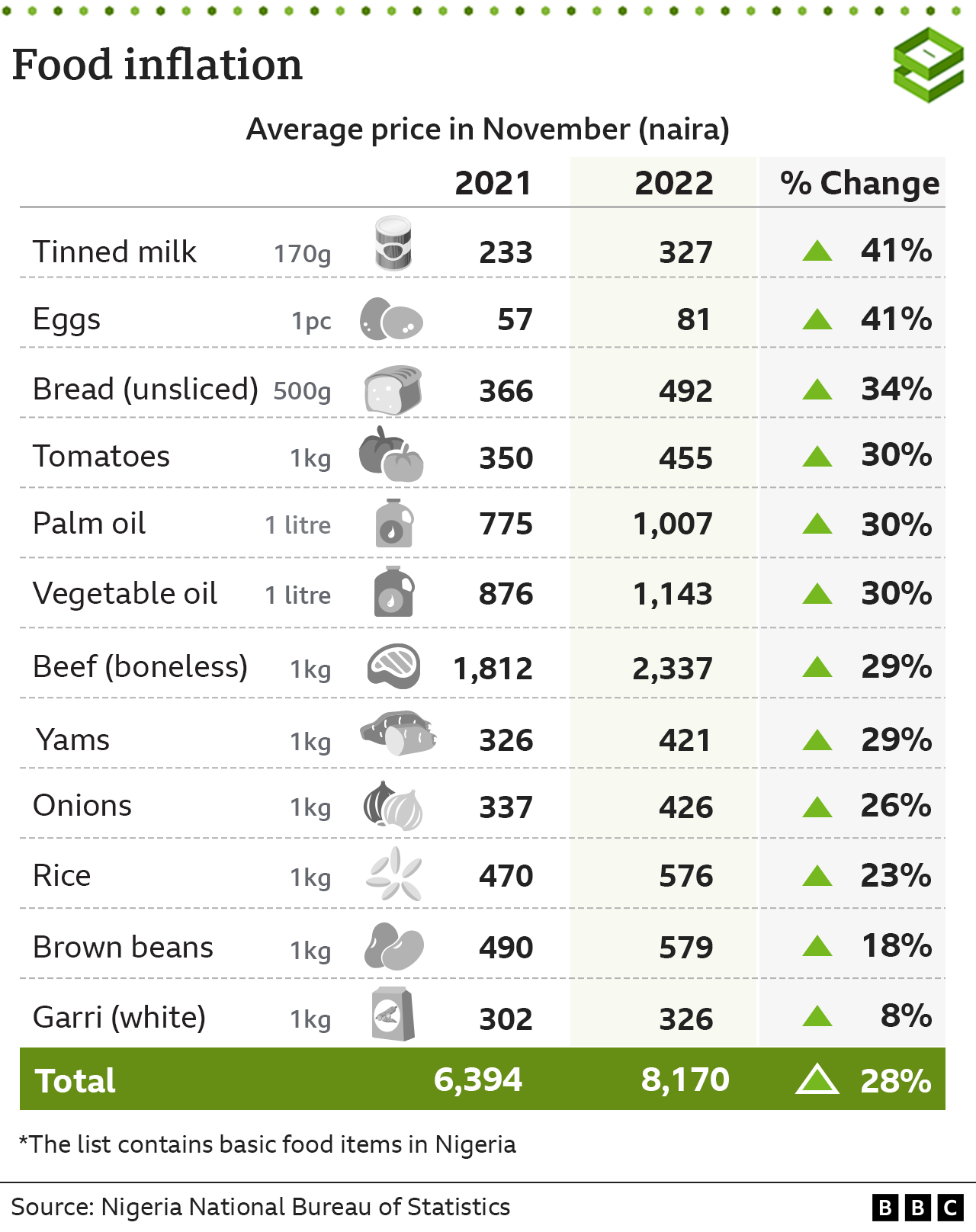
The issue that the government already spends more than it receives must be addressed if the new president wants to assist people with the cost of basic necessities.
Since the oil-producing country has limited refining capacity and must re-import gasoline, significant amounts of money are spent on subsidizing gasoline, making it impossible for it to benefit from higher oil prices.
With the cost of paying interest on the national debt occasionally exceeding government revenue in 2022, analysts are growing more concerned about the sustainability of the national debt.
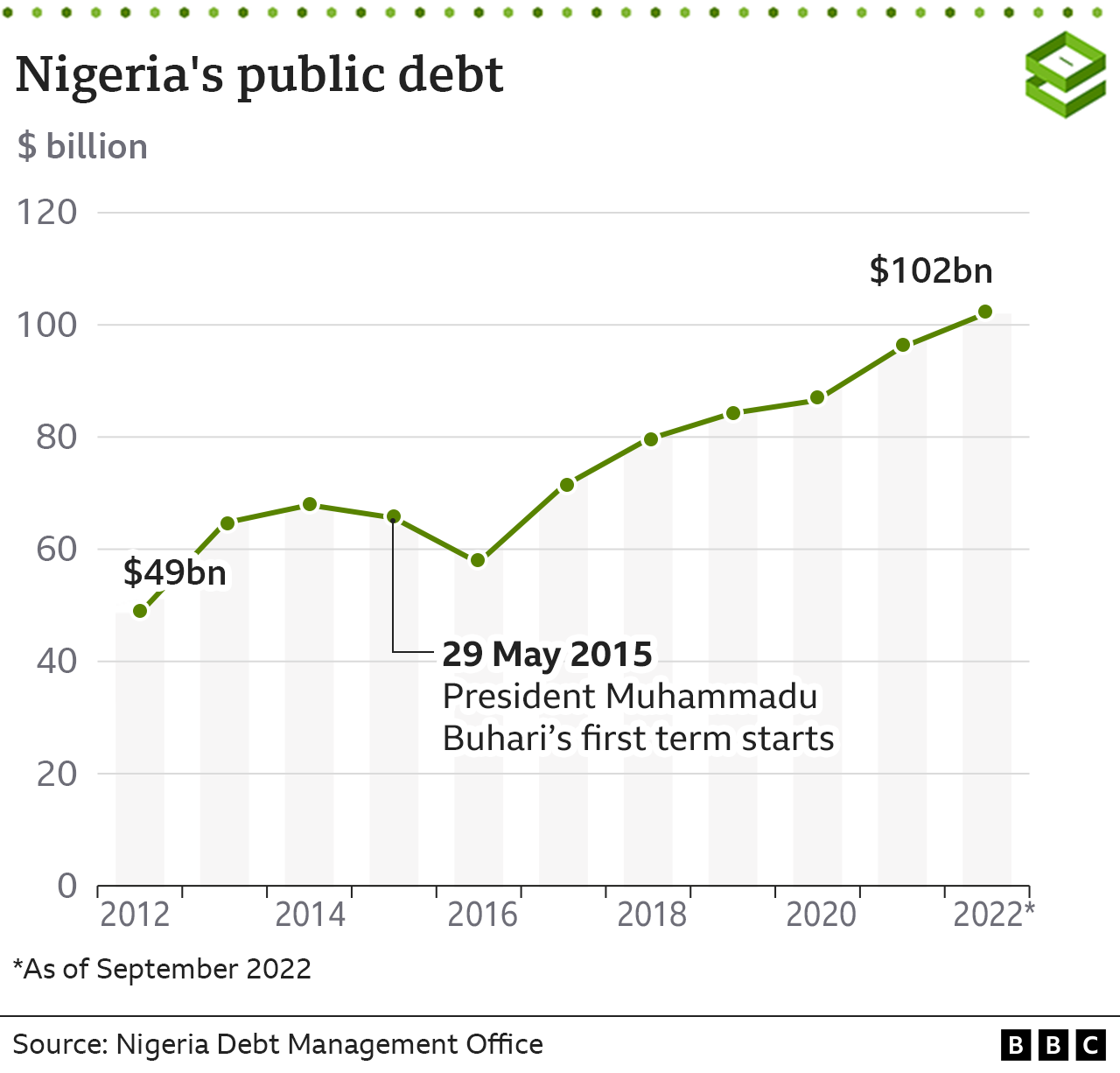
Nigeria has relied on the black gold as one of Africa's top oil producers and a source of essential foreign currency. The oil-rich nation has not, however, used the money that was made. - . Much of it has been misappropriated or stolen.
And over the past ten years, oil production has been falling. It dropped to its lowest point in thirty years in 2022.
The decrease in output has been attributed to vandalism and oil theft. Nigeria is lagging behind other oil-producing countries as a result of this, years of underinvestment, and the age of the oil fields.
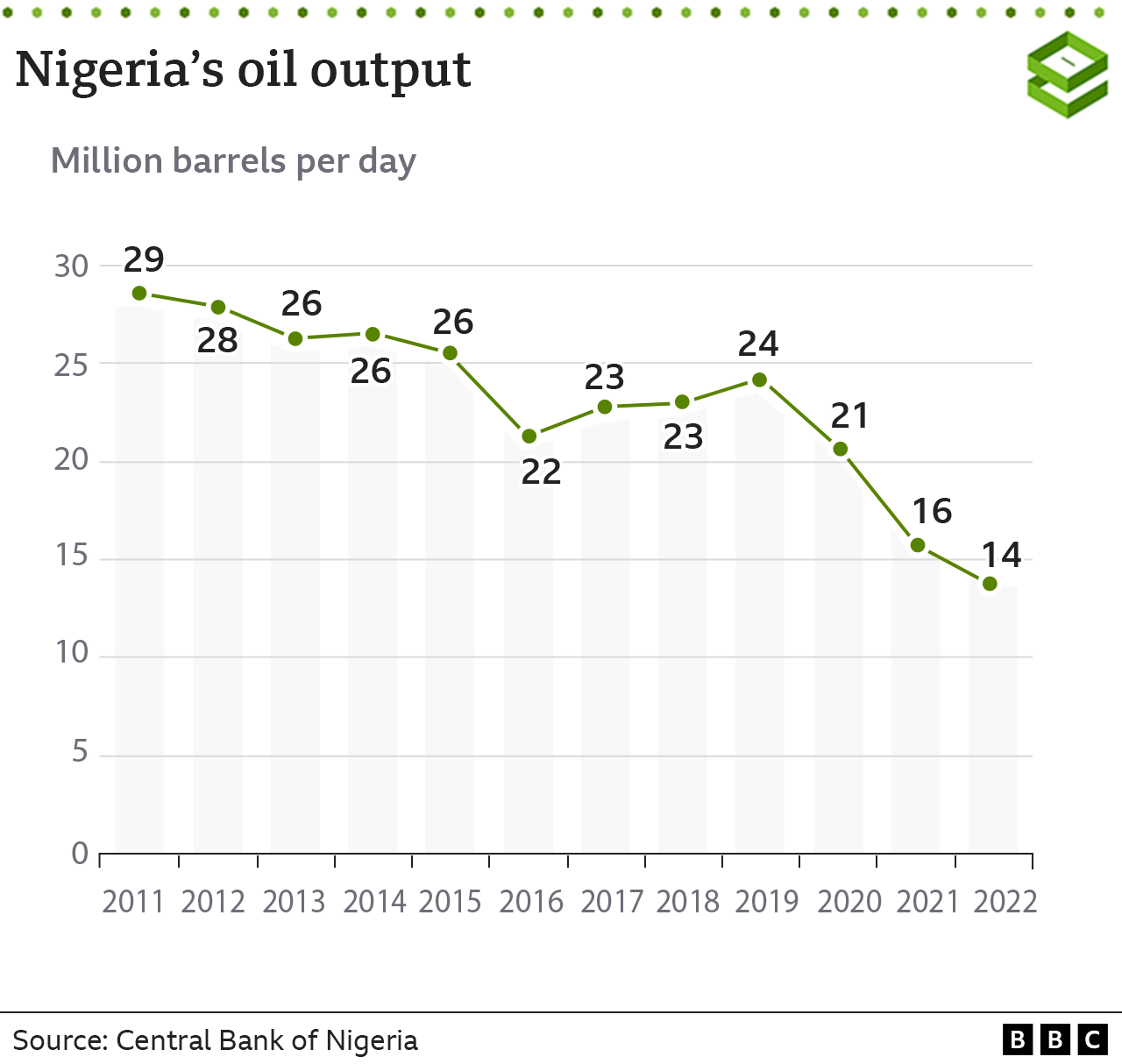
Nigeria's leaders face the challenge of utilizing this youthful population because half of the population is under the age of 18.
To meet the needs and aspirations of all those young people, they must contribute to the economy's expansion.
40 percent of registered voters are under 35, making them a sizable constituency despite the fact that so many of them are too young to cast ballots. The results of the election might be affected by a direct appeal to them.
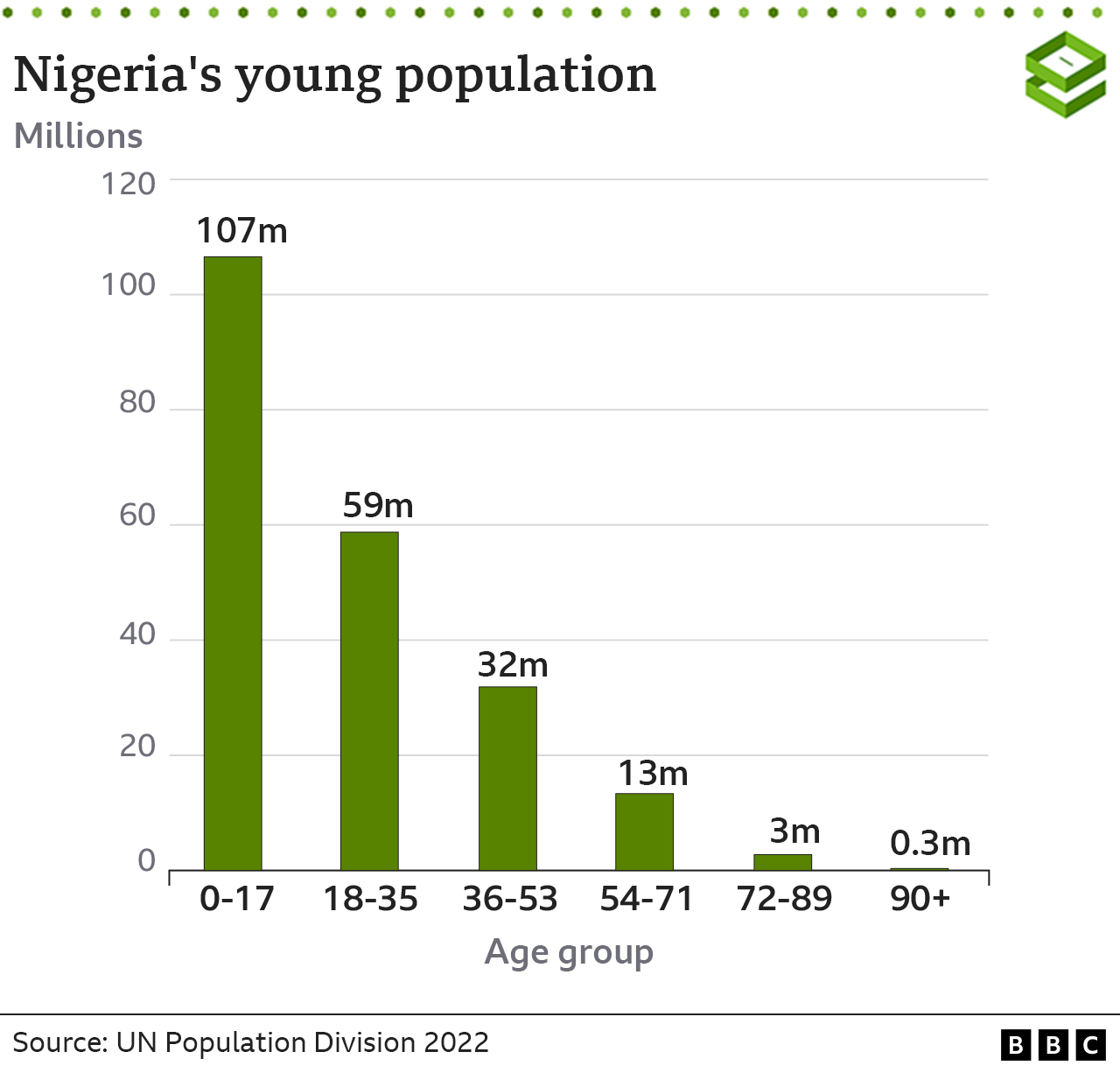
Most young Nigerians prioritize finding work as their top priority.
A third of Nigerians who want to work are currently unemployed. In terms of youth, more than half of those between the ages of 15 and 24 are looking for work.
Even though unemployment rates were rising prior to the virus's outbreak, the Covid pandemic response measures undoubtedly had an impact.
Since 2015, the economy has expanded, but not quickly enough to handle the influx of new workers looking for work.
One factor blamed for the economy's slow growth has been insecurity, but economists have also pointed the finger at other policies like currency controls and closing borders to many imports, claiming these deter investment.
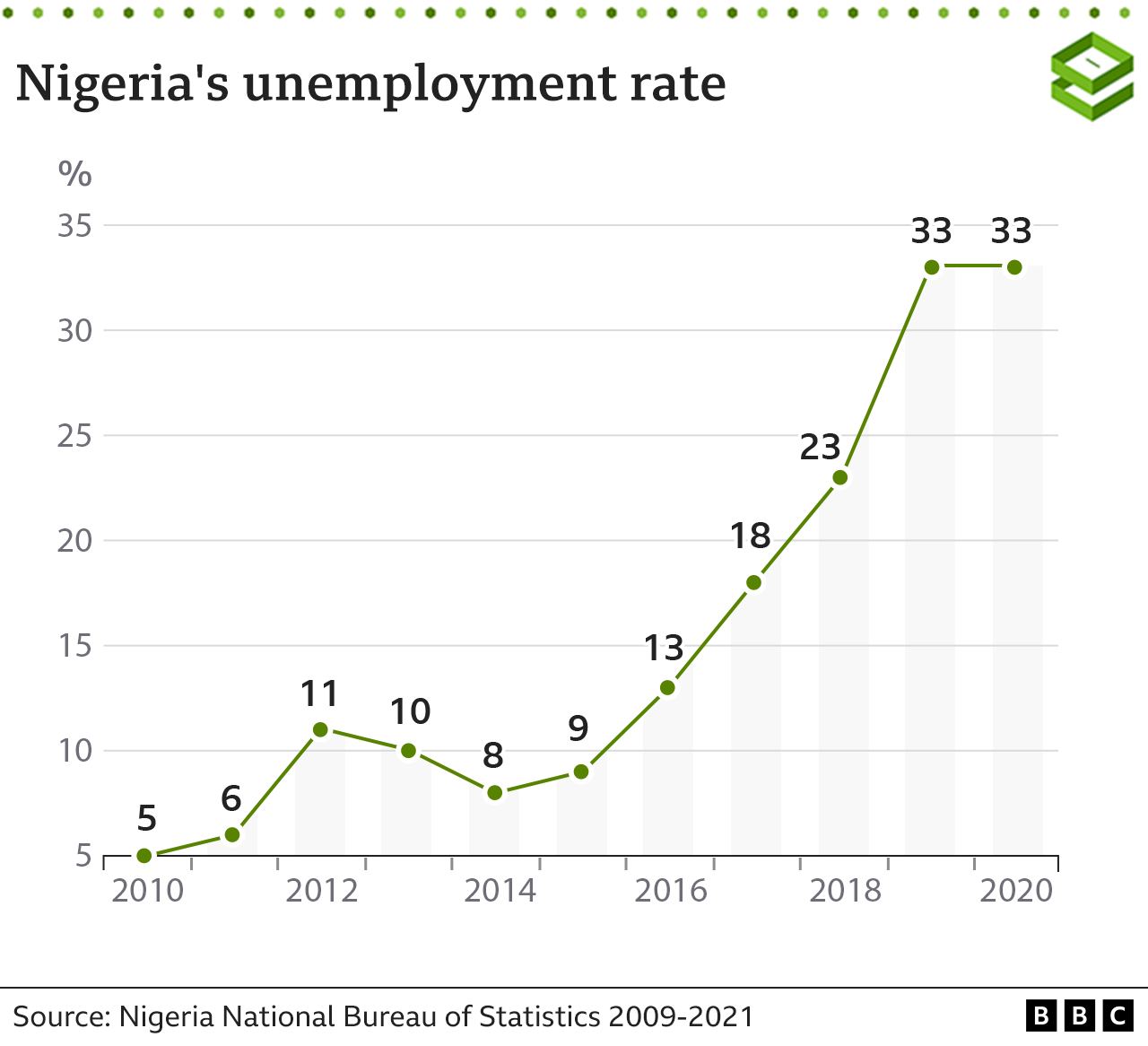
Low levels of access to some fundamental infrastructure that might ease daily life and business operations are present.
According to World Bank data, only about 55% of the population has access to electricity, which has long been criticized due to the power network's poor condition.
Nigeria ranks in the middle of the pack among West African nations in terms of its percentage of citizens who use the internet, at just 36%.
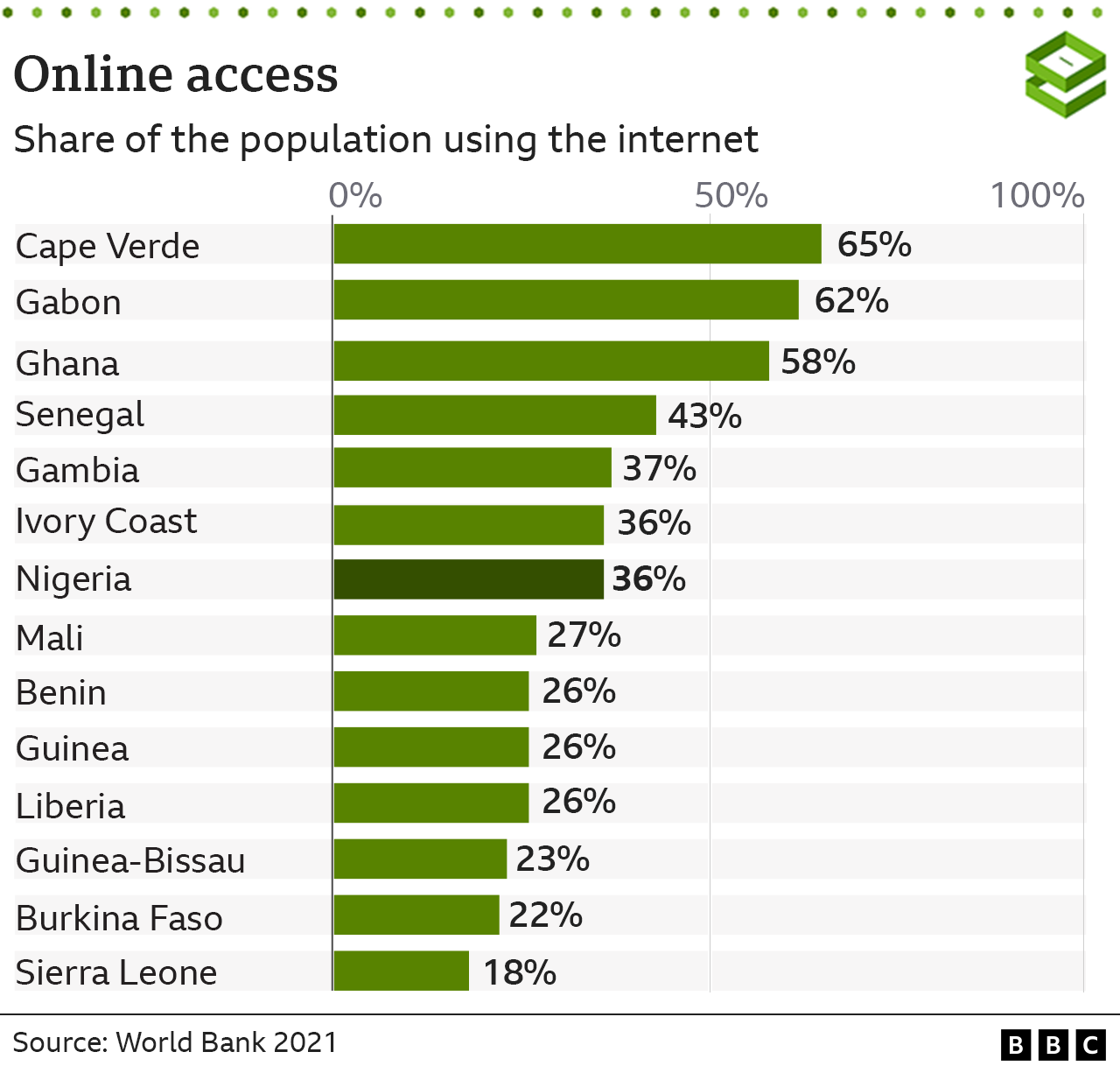
The next president's top priority will be to address the rising levels of violence in Nigeria.
The biggest worry when President Buhari was first elected in 2015 was the threat posed by the north-eastern Boko Haram militant Islamist group. Increases in kidnappings, politically motivated attacks, farmer-herder tensions, criminal violence, a separatist insurgency in the south-east, as well as police brutality, undermine the public's confidence in the state's ability to keep them safe, even though they no longer control much land.
The problem has now spread throughout the entire nation and is no longer primarily a north-east problem.
One in five of all children worldwide who do not attend school reside in Nigeria.
The fact that nearly 40% of children aged 5 to 11 in the country do not attend school is a serious concern, even though this is partially due to the size of the country's young population.
This is a national problem, but the north typically has lower attendance rates. Insecurity has had some impact, but poverty and gender are also important considerations.

